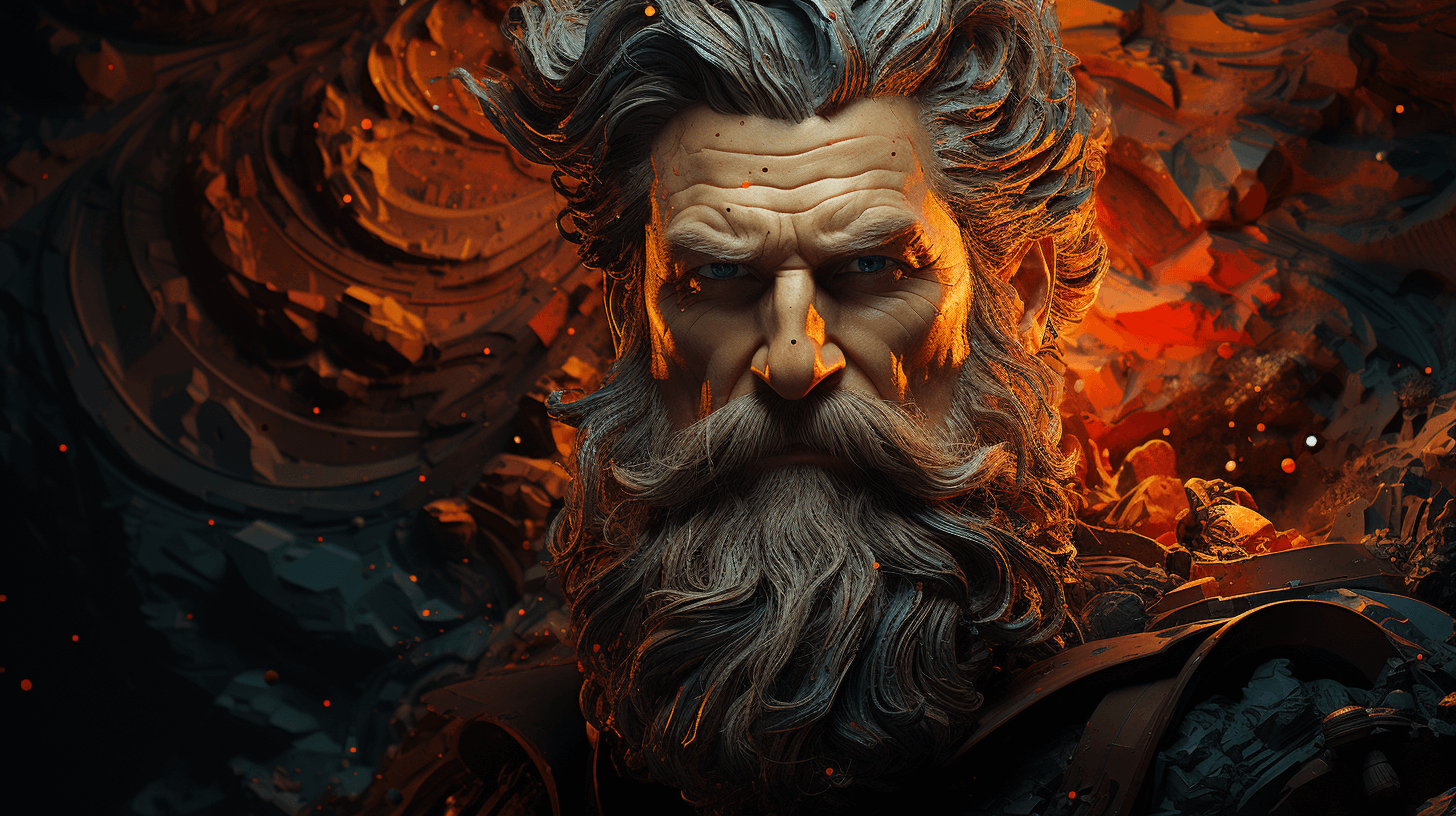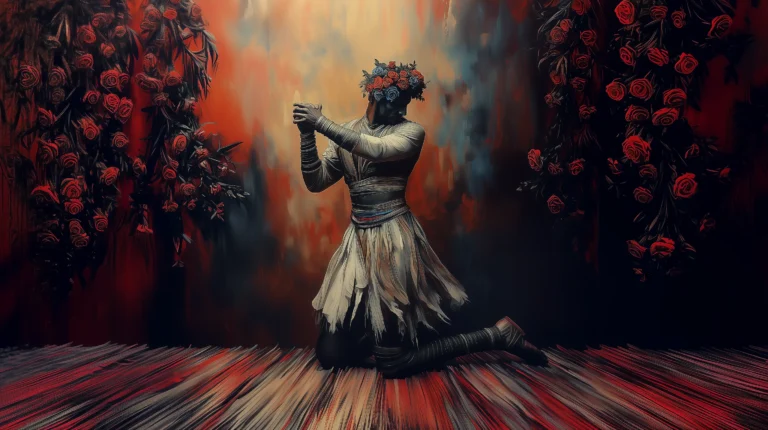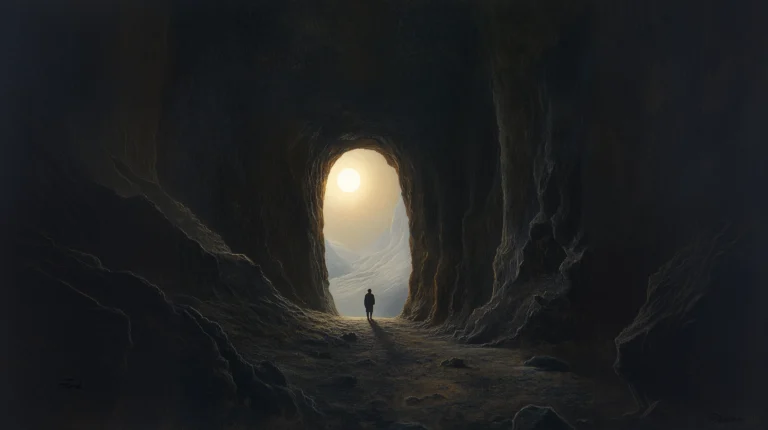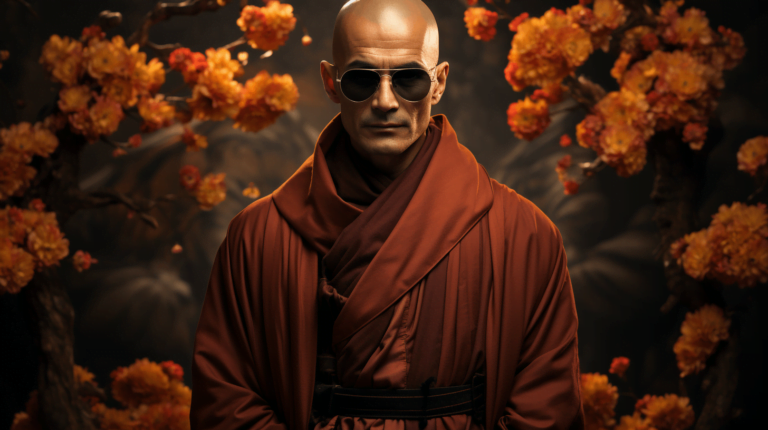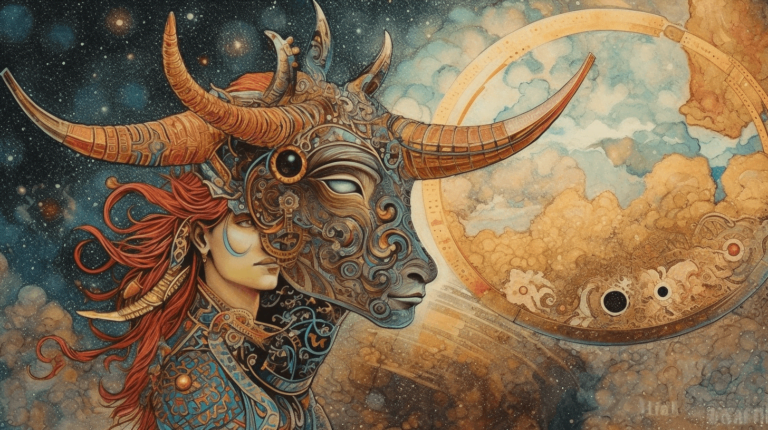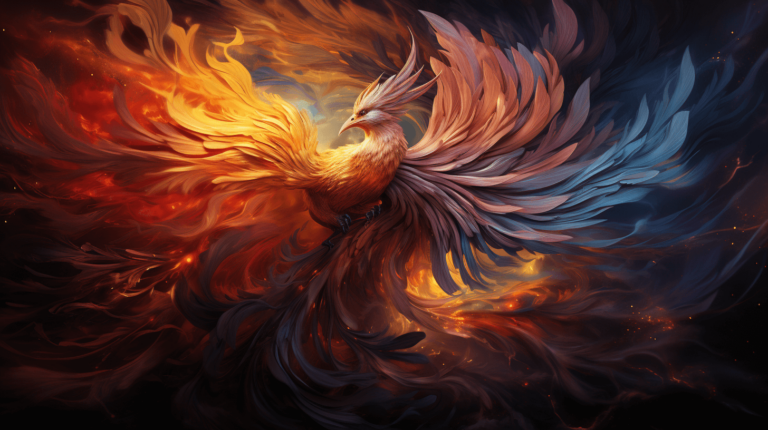In Pursuit of True Virtue
In the labyrinth of human existence, certain concepts emerge as guiding lights, helping us navigate the complex intricacies of life. Among these, the ideals of courage, excellence, and virtue stand tall, revered across civilizations, philosophies, and epochs. These are not just abstract notions, relegated to the dusty pages of ancient manuscripts. Instead, they represent tangible, actionable ideals that can profoundly influence both individual lives and collective societal paradigms.
At the heart of this discourse lies a seemingly simple equation:
“Courage + Excellence = Virtue.”
Yet, beneath this mathematical representation bubbles a cauldron of depth, history, and transformative potential. By dissecting and understanding this relationship, we unearth a framework that can guide our actions, refine our character, and mold a legacy.
Dive with us into this exploration, as we unravel the threads binding courage and excellence to virtue. Together, we’ll journey through the annals of philosophy and myth, seeking insights and wisdom that illuminate the path to a life of purpose and meaning.
Character’s Cornerstones
In the grand theater of existence, human character plays a pivotal role. This intricate composition, much like a symphony, resonates with various notes—each reflecting a distinct quality, a unique virtue. Central to this ensemble are three powerful notes: courage, the driving force; excellence, the aspirational goal; and virtue, the ultimate manifestation of our highest selves. Together, they form a harmonious trio, orchestrating a life of meaning, purpose, and distinction.
Friedrich Nietzsche, the German philosopher known for his deep dives into morality, power, and the nature of existence, once remarked,
“He who has a why to live can bear almost any how.”
Diving into the depths of Nietzsche’s insight, we find ourselves navigating the intricate dance between purpose and action, intertwining the essence of our existence with the pathways we choose to manifest it.
Courage, as we understand it, encapsulates the ‘how.’ It’s the mechanism, the driving force that equips us to confront the myriad challenges life throws our way. It’s the grit, the resilience, the fortitude that empowers us to stand firm in the face of adversity, to push through when the going gets tough, and to hold onto our beliefs even when they’re tested.
On the other hand, excellence delves into the ‘why.’ It is more than just achieving a task or reaching a goal. Excellence is about seeking a higher purpose, a deeper meaning in everything we undertake. It’s the intrinsic motivation that drives us to surpass the ordinary, to rise above the mundane, and to aspire for the exceptional. It’s the quest for significance in our endeavors, the yearning to leave a mark, to contribute something of value, and to live a life of purpose.
When these two potent forces – the ‘how’ of courage and the ‘why’ of excellence – come together, they pave the way for virtue. Virtue, in this context, becomes an elevated state of being, where our actions are not just reactions to external stimuli but are deeply rooted in purpose and executed with unwavering determination. It is where our existence transcends beyond the mere act of living, touching realms of deeper meaning and unparalleled fulfillment.
Embarking on a journey through the rich tapestry of human character, we delve into the cornerstones of courage, excellence, and virtue. These aren’t mere words, but profound pillars that have shaped history and personal destinies alike. Let’s explore their depths and the symphony they create when harmoniously intertwined.
Courage: The Foundation of Action
In both historical and modern contexts, courage is not merely a spontaneous burst of bravery in confronting overt dangers. Instead, it delves deeply into the human psyche, representing an intricate tapestry of strengths that allow an individual to stand resolute amidst life’s tempests.
Courage embodies mental fortitude, the unyielding spirit that permits one to wade through the complexities of personal, professional, and societal challenges without faltering. It encompasses emotional resilience, a steadfast grip on one’s convictions even when they stand against the tide of popular opinion or come at a personal cost. At its heart, courage is also a testament to moral integrity, the undying commitment to uphold what is just and right, often in defiance of more tempting, easier paths.
Excellence: The Pursuit of Mastery
Excellence is not the destination of perfection but the relentless journey towards it. It is the symphony of an individual’s unwavering dedication to their passion, mission, or vision.
At the cornerstone of excellence lies the spirit of continuous improvement, a humble acknowledgment that no matter the height of one’s achievements, there’s always another pinnacle to strive for. It’s fueled by an undying commitment, the kind that remains undeterred by setbacks, viewing them not as roadblocks but as stepping stones. And in this pursuit, excellence values the essence over the volume, prioritizing work that resonates with meaning and upholds the highest standards over that which simply adds to the count.
Virtue: The Ultimate Aspiration
Virtue, as celebrated in diverse philosophical traditions, represents the zenith of human aspirations — it’s the crystallization of the good, the noble, the pure.
It is holistic in its approach, suggesting that true virtue isn’t just a sporadic act but a harmonious alignment of one’s deeds, thoughts, and principles. It possesses a universality, asserting that while societies might color virtue with their cultural hues, its heart — the essence of goodness and righteousness — beats consistently across human civilizations. Virtue is not fleeting; it isn’t a momentary flicker but a luminous flame that burns bright, marking a lifelong commitment to personal and moral evolution.
Harmony: The Fusion
The union of courage and excellence births a force unparalleled in its potency.
It champions action imbued with purpose. Here, courage doesn’t just initiate movement; it’s the powerful surge that pushes us forward, while excellence is the compass, ensuring every stride resonates with meaning and meets impeccable standards. This synergy promotes growth that’s not aimless but has direction and vision. Courage, with its audacious spirit, dares to dream and venture into the unknown, and excellence, with its discerning eye, ensures this exploration yields wisdom and value. The resultant character is not superficial; it has depth, fortified by the resilience of courage and refined by the meticulousness of excellence, painting a portrait of an individual both formidable and enlightened.
A Glimpse into Ancient Roman Mythology
Ancient Rome, with its majestic pillars, echoing chambers, and vibrant mosaic of life, is a civilization that has never ceased to captivate our collective imagination. Beneath its architectural marvels and political intrigues, Rome held a treasure trove of stories, legends, and myths. These tales were not merely for entertainment; they were the moral compass, guiding the Romans on a journey to understand humanity and the cosmos.
Courage in Roman Consciousness
When we discuss courage in the Roman era, it’s essential to understand that it had a profound and multifaceted meaning. For the Romans, courage wasn’t just about heroism in battle or confronting danger head-on. It was about the silent strength one exhibited in upholding personal beliefs, especially when faced with overwhelming challenges. It meant remaining resolute during adversities and ensuring the stability of society and civic values.
The Romans often looked to the tales of Hercules for inspiration. While Hercules is famously known for his immense strength and his Twelve Labors, it’s his resilience and determination that set him apart. Every task he undertook showcased his unwavering spirit.
Mars, the god of war, also played a significant role in defining Roman courage. He wasn’t just a symbol of military might. Mars represented the spirit necessary to defend and uphold Roman ideals and values.
Excellence and the Roman Aspiration
Excellence had a special place in Roman culture. It was not limited to battlefield heroics; it signified the endless endeavor of being the best one can be, pushing one’s limits, and continually striving for improvement. Every Roman, irrespective of their background or gender, was urged to lead a life marked by excellence.
Aeneas, the hero from Troy who eventually laid the groundwork for Rome, epitomized this quest for excellence. Journeying from the ruins of Troy in pursuit of a prophesized homeland, he encountered countless challenges. His dedication to his people and his destiny reflected the pinnacle of Roman excellence.
Additionally, Minerva, the goddess of wisdom, art, and strategy, was held in high regard by the Romans. As a symbol of mastery and expertise, she continually inspired the Romans to recognize and reach their true potential.
Virtue The Timeless Quest
The Romans revered virtue, seeing it as the perfect blend of wisdom, justice, courage, and moderation. It wasn’t a mere concept but a way of life, a beacon that would guide them through the labyrinth of existence. Virtue was the art of balance, knowing when to act and when to refrain, when to speak and when to listen.
Romulus, the legend upon whose shoulders Rome was built, is a reflection of this intricate dance between courage and excellence. As he envisioned a city that would be the heart of an empire, his dreams were big, his ambitions high, but it was the balance he struck between his courage and vision that brought Rome to life. Yet, his life also serves as a reminder of the need for moral grounding, symbolized by his tragic altercation with Remus.
Venus, the goddess of love, beauty, and virtue, further encapsulates the Roman aspiration for a life lived with integrity, kindness, and grace. She wasn’t just an emblem of romantic love but symbolized the purest virtues the Romans held dear.
The Legacy of Ancient Rome
Joseph Campbell once said,
“Myths are public dreams, dreams are private myths.”
For the Romans, their myths were reflections of their deepest aspirations, fears, hopes, and values. The equation of Courage + Excellence = Virtue was not just philosophical musing. It was their heartbeat, the rhythm to which they lived, loved, and aspired.
For all of us, no matter the era or culture, these stories serve as a timeless reminder. They beckon us to find our courage, to strive for excellence in our pursuits, and to seek a life of virtue. In the end, like the Romans, may we all find our place among the stars, leaving a legacy that resonates through time.
The Core of Genuine Existence
In the grand mosaic of human virtues, there lies a gem often overlooked yet immensely powerful: Authenticity. While courage propels us forward and excellence guides our pursuit, it is authenticity that roots our existence in truth, allowing our spirit to genuinely resonate with our actions. Together, Courage + Excellence + Authenticity culminate into what can be deemed as True Virtue.
Courage + Excellence + Authenticity = True Virtue.
At its core, authenticity is about living in harmony with one’s true self. It’s not about conforming to societal expectations or donning masks to fit particular narratives. Instead, it’s about peeling away layers of pretense, confronting our vulnerabilities, and embracing our innate identity. It is the daring act of showing up in the world, not as who we think we should be, but as who we truly are.
Joseph Campbell, in his exploration of myths and their significance in human lives, often touched upon the idea of the “Hero’s Journey.” This journey, filled with challenges, transformations, and eventual rebirth, can also be seen as an odyssey of discovering one’s authenticity. As the hero navigates the treacherous terrains of external challenges, they also grapple with internal conflicts, gradually shedding layers of illusion to uncover their true essence. This journey, while perilous, is essential, for it is in the heart of these trials that one finds genuine self-awareness and authenticity.
Ancient Rome, too, wasn’t devoid of this understanding. The Romans, with their intricate pantheon and moral compass, understood the value of genuine, authentic leadership and existence. Emperors and generals, poets and philosophers — their legacy wasn’t just built upon their deeds but also on the authenticity with which they approached their roles. Think of Marcus Aurelius, not just a Roman Emperor but also a Stoic philosopher. His writings in ‘Meditations’ provide a candid look into his thoughts, fears, and aspirations, revealing a ruler striving for genuine self-awareness and authenticity amidst the trappings of power.
Moreover, in the realm of Roman deities, Janus stands out. The two-faced god, often associated with beginnings, transitions, and endings, can also be seen as a symbol of authenticity. With one face looking to the past and another to the future, Janus reminds us of the importance of being true to our origins while evolving and growing. He signifies the balance of honoring one’s past and embracing the potential of the future — a dance of genuine self-reflection and forward-thinking.
For those embarking on a journey towards a more genuine life, authenticity serves as the North Star. It urges us to ask profound questions:
“Who am I at my core?”
“What do I stand for?”
“Am I living in alignment with my true self?”
By seeking answers to these questions, we pave the way for a life not just of success, but of significance.
In our modern age, where the noise of external influences can be deafening, the quest for authenticity becomes even more crucial. In a world dominated by curated realities and filtered truths, the brave act of living authentically shines brightly, illuminating the path for others.
Concluding this exploration of virtues, it becomes clear that while courage and excellence are foundational pillars, it’s authenticity that binds them, giving substance and depth to True Virtue. As we journey through life, may we all strive to find our authentic voice, and in doing so, inspire others to find theirs. For in a symphony of genuine voices, the most harmonious and impactful melodies are born.
The Triumvirate of Virtue
As we stand at the precipice of understanding, Nietzsche might have reminded us that the individual, in all their authenticity and uniqueness, becomes the torchbearer of true virtue. The labyrinth of existence, with its twists and turns, does not present us with a singular, defined path. Instead, it unfurls myriad trails, each beckoning with its own set of challenges and revelations. It is here, at the crossroads of choice and destiny, that the notions of courage, excellence, and authenticity intertwine to illuminate the road less traveled.
Human existence is not a passive experience; it is an active assertion, a dance between our inner worlds and the vastness of the universe around us. Nietzsche once proclaimed,
“Become who you are.”
This is not a call for complacency, but rather an invitation to embrace our deepest potentials and confront our most profound fears. To be authentic is to recognize that we are perpetually in the process of becoming, forever evolving in the crucible of life’s experiences.
To the novices of philosophy and seekers of truth, remember: the journey towards virtue is not a destination but a continuous exploration. It is not a mountain peak waiting to be conquered but a horizon that keeps expanding as we advance. Courage provides the strength to move forward, excellence offers the vision to elevate our endeavors, and authenticity ensures that our journey is rooted in genuine self-reflection.
In the grand tapestry of existence, we are but threads. Yet, when we weave our stories with courage, elevate our endeavors with excellence, and remain true to our authentic selves, we contribute to a masterpiece that transcends time. Such a tapestry, rich with the colors of virtues, serves as a testament to the indomitable spirit of humanity, echoing Nietzsche’s sentiment that
“man is something that shall be overcome.”
As we conclude this introspection into the very essence of human virtues, let us embrace the eternal dance of becoming, ever-evolving, ever-redefining, yet forever grounded in the core tenets of courage, excellence, and authenticity. For it is in this dance, in the embrace of our authentic selves, that we find the true rhythm of life and the melody of genuine existence. In the words of Friedrich Nietzsche,
“What does not kill me makes me stronger.”
Rome’s Guiding Star
In the heart of ancient Rome,
Where stories spun and legends roamed,
There stood three virtues, tall and grand,
Shaping fate with a gentle hand.
Courage, the lion, fierce and bold,
Its tales in coliseums, oft retold.
It taught that fear, though present, true,
Should never deter what one pursues.
Excellence, the sculptor, hands so fine,
Chiseled life’s marble, line by line.
With a craftsman’s touch and an artist’s grace,
It sought to perfect, not just to trace.
Authenticity, the mirror’s gaze,
Reflected truth in a world ablaze.
In its shine, we find our core,
Our truest self, forevermore.
Together they danced, in life’s grand play,
Guiding souls, by night and day.
For in their embrace, we come to see,
The path to our best destiny.
So, when in doubt or shadow’s sway,
Remember these virtues, come what may.
Courage, Excellence, Authenticity pure,
With them, our purpose is sure.

